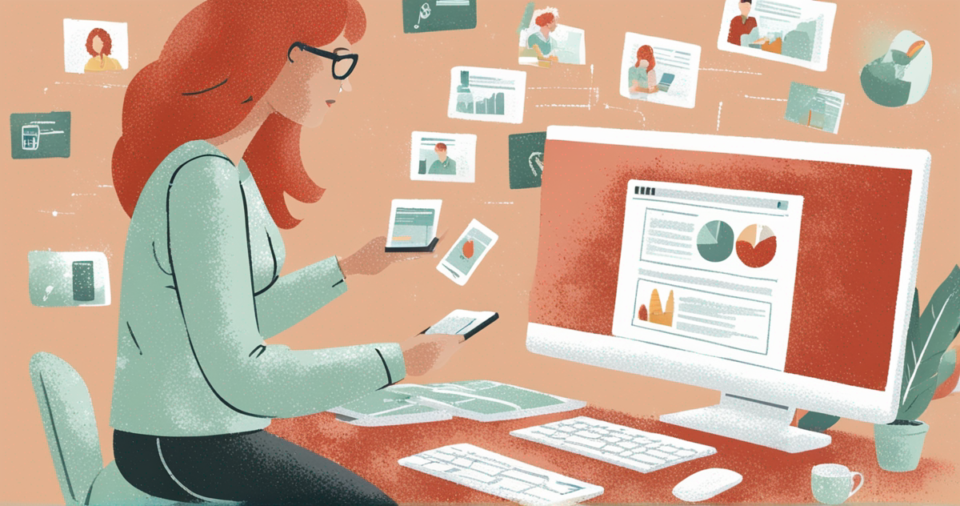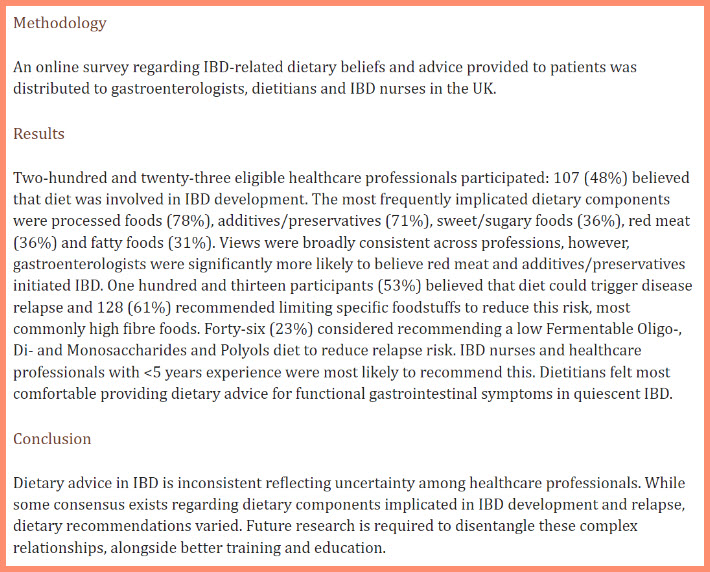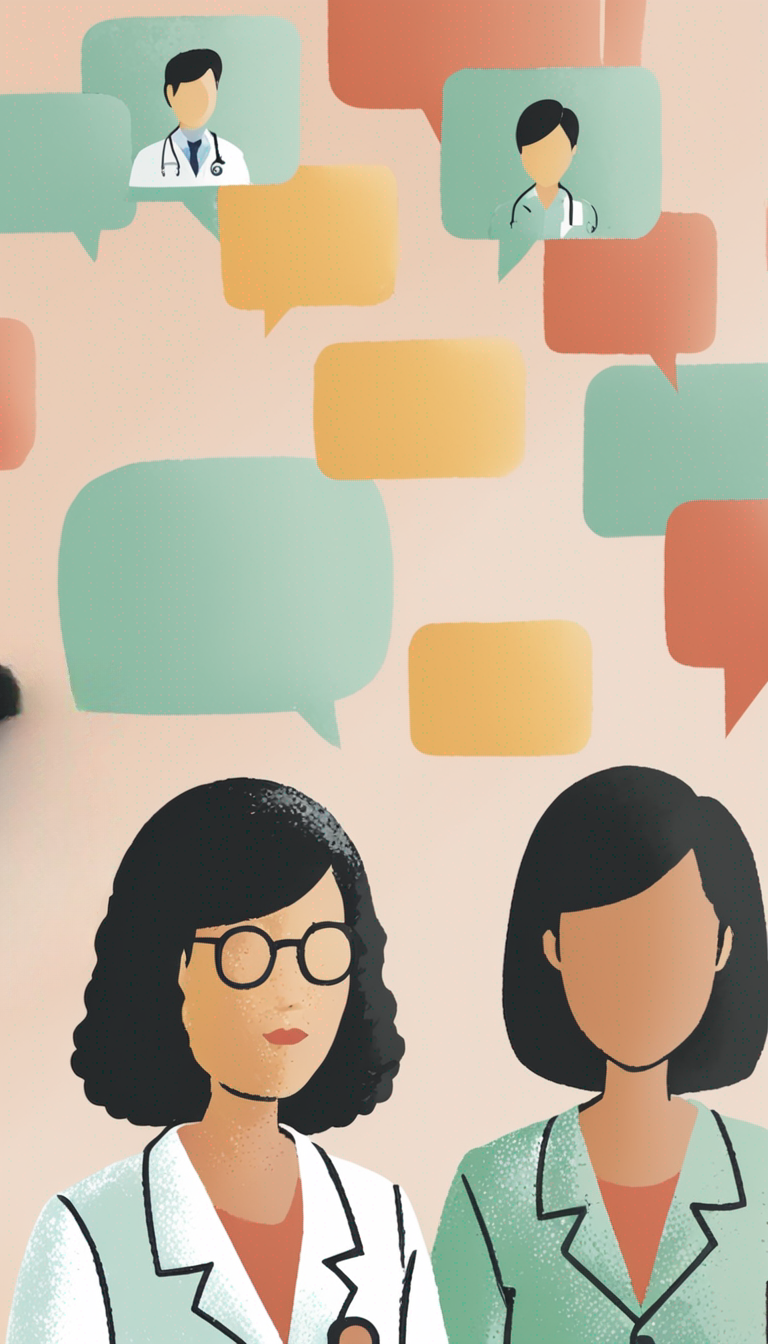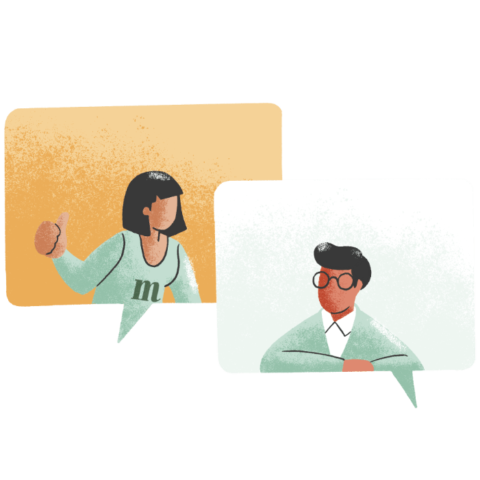

If you watched the recent conversation between our digital strategist, Debbie, and eczema patient advocate, Ashley Lora, you’ll know many important and interesting topics were brought to light. One key topic was the lack of information and knowledge sharing, which is something patient communities are really crying out for. It’s something I’m personally really passionate about, so I wanted to expand on the problems and some potential solutions a little further.
I am that patient. I am the patient who has been left with many unanswered questions. I am the patient who’s had to do lots of my own research - allowing me to try treatments for my ulcerative colitis that weren’t offered by my inflammatory bowel disease (IBD) team, and diagnosing my own skin condition. I am the patient who has been sent away with a printed sheet to learn about the new treatment I’m starting because the gastroenterologist (GI) didn’t have time to go through any of it with me. I am the patient who ultimately lost all faith in the healthcare system because of my repeated experiences of invalidation and a lack of a good standard of care.
Many patients want to understand medication decisions and be able to be part of the decision-making process about what goes into their body. They want to understand why treatment X might work better for them than treatment Z. They want to understand what the latest research is saying and how that could impact future treatment options. They want to know if there’s a clinical trial they can get involved in. But all too often, no one is telling them these things.
In an ideal world, patients would know exactly where they can look at their treatment options more closely. They would be able to look at the research and outcomes in layman's terms and understand which treatment might work best for them and why, as well as preferences such as route of administration (rectal, oral, subcutaneous, or intravenous). With this knowledge, patients could view their options and make an informed choice depending on what best suits their lifestyle.
Newly diagnosed patients or those with lower health literacy skills often only know what the doctor tells them. They trust that the healthcare professional looking after them knows best. But, when one, two, or three, of the treatment options haven’t helped or have stopped helping, or tests haven’t highlighted a cause for symptoms, those patients begin asking questions, often outside of their healthcare team. They start asking Dr Google and other patients on social media and in groups. This is concerning because, without good health literacy skills, the World Wide Web is a confusing, and often scary, place. There’s conflicting information, misinformation, and people and companies looking to pray on the vulnerable and sick.

I’m an IBD advocate, and I’m lucky enough to be able to read and join in with, a very active online community of GIs. Each week, on X, MondayNightIBD engages GIs around the world in conversations that are useful for patients like me to read. It helps me understand how the people sitting on the other side of the table think and prioritise. It also helps me understand what their pain points are!
I utilise lists to keep an eye on what’s going on in GI and I follow GI event coverage on social media to learn about breakthroughs in science and technology. During COVID, I was regularly scrolling through a list I’d created of UK gastroenterologists, colorectal surgeons, and IBD specialist researchers, to stay up to date on what the recommendations were so I could feed it back to my community.
I have access to this information, and for that I am grateful, but most people living with IBD or raising awareness of IBD don’t go to the nerdy lengths I go to. They won’t read journal papers because they do not understand them, so they have no idea what treatments, therapies, apps etc. are being developed until someone like me or a charitable organisation picks it up and starts to talk about it. And I don’t have all the time in the world to keep myself up to date and the community apprised. In fact, I often feel like I have no time to invest in that side of things; it’s dependent on how much support has been necessary elsewhere in the community each week, as there’s only so much of my time I am able to give freely.
I understand the issues around pharma directly engaging with patients and sharing their research. However, patients should, at the very least, be able to access this information or know it exists.

The doctor-patient relationship has the potential to be a wonderful source of knowledge, inspiration, and hope, but as it stands, it regularly falls far short of that. The time I get with my GI is mainly taken up by her running through standard questions about the frequency, urgency, and consistency of my bowel movements and the medications I’m taking. Imagine if that time were instead used to talk about the results of my latest tests, what this might mean going forward, and what options I might have in the future based on the newest research. That is a conversation I’d like to be part of!
At this point, you might be wondering why pharma, device, or diagnostic teams should even concern themselves with addressing the information gap faced by patients. After all, their primary focus is on developing and delivering innovative treatments and diagnostics. However, there's a compelling value proposition for health companies to invest in patient education and engagement.
When patients feel informed and engaged, they're more likely to get tested, adhere to treatment plans, participate in clinical trials, and become advocates for better care within their communities. This, in turn, can lead to improved patient outcomes, increased brand loyalty, and ultimately, better business results for pharma companies.
Moreover, by collaborating with patients to create accurate, understandable educational materials, health companies can demonstrate their commitment to patient well-being and build trust with the very people they aim to serve. This trust is essential in an era where patients are increasingly skeptical of the pharmaceutical industry and seeking greater transparency.
Investing in patient education and engagement is not just a nice-to-have – it's a strategic imperative for health companies looking to thrive in a patient-beneficial healthcare landscape.
Small collaborative groups of healthcare stakeholders can create solutions. At Merakoi, we call these "mini-communities" and they offer a powerful way to address the current lack of information sharing between healthcare providers, pharma companies, and patients. By bringing together diverse groups of patients, physicians, specialists, and pharma or health tech innovators, mini-communities enable the co-creation and dissemination of accurate, understandable educational materials that meet the needs of all stakeholders.
So, how would this work in practice? Let's use IBD as an example. An IBD mini-community could be segmented based on factors like patient activation measurements (PAM), disease type, professional skills, clinical trial experience, and influence. Highly activated patients with content creation skills would be ideally suited for the co-creation phase, as they understand the language and informational needs of other patients. Physicians could provide medical expertise and ensure accuracy, while pharma companies could share their latest research and developments.
To ensure the co-created materials are truly accessible and understandable, additional mini-community cohorts could be involved in the review process. For example, patients with lower health literacy levels could provide feedback on the clarity and comprehensibility of the content. If the materials focus on clinical trial information, a cohort of patients with trial experience should be engaged to offer their unique insights.
Given the constantly evolving nature of medical research and treatment advancements, mini-community partnerships should be ongoing, allowing for the timely updating of educational materials. This continuous engagement not only ensures that patients have access to the most current information but also fosters a sense of trust and collaboration between all parties involved.
Co-created content can then be disseminated through various channels, including patient advocacy groups, influential patient leaders, healthcare providers, and specialists. By involving mini-communities of influential patients in the creation and sharing of these materials, we can amplify their reach and impact.
At Merakoi, we're passionate about harnessing the power of mini-communities to bridge the information gap and empower patients to take control of their health journeys. By fostering ongoing collaboration between patients, healthcare providers, and pharma companies, we're creating a future where every patient has access to the knowledge and support they need to thrive.
Together, we can build a world where no patient is left in the dark, searching for answers. If this sounds like the kind of healthcare innovation you want to participate in, let's chat!
About Merakoi
Merakoi partners with health and life sciences companies to build mini-communities that guide product development through continuous user insights. Our network of patients/advocates and proprietary community platform enable engaging, longitudinal co-creation between users and developers. The result is human-centered solutions that resonate powerfully in the real world.

✕